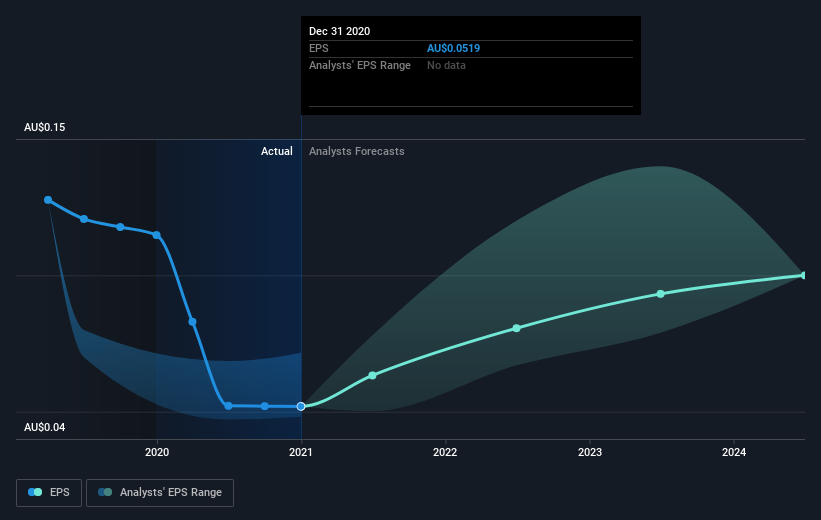If You Had Bought Qube Holdings (ASX:QUB) Stock Three Years Ago, You Could Pocket A 19% Gain Today
By buying an index fund, investors can approximate the average market return. But many of us dare to dream of bigger returns, and build a portfolio ourselves. For example, the Qube Holdings Limited (ASX:QUB) share price is up 19% in the last three years, clearly besting the market return of around 16% (not including dividends). On the other hand, the returns haven't been quite so good recently, with shareholders up just 9.1% , including dividends .
See our latest analysis for Qube Holdings
To paraphrase Benjamin Graham: Over the short term the market is a voting machine, but over the long term it's a weighing machine. One way to examine how market sentiment has changed over time is to look at the interaction between a company's share price and its earnings per share (EPS).
During three years of share price growth, Qube Holdings achieved compound earnings per share growth of 2.9% per year. This EPS growth is lower than the 6% average annual increase in the share price. This indicates that the market is feeling more optimistic on the stock, after the last few years of progress. That's not necessarily surprising considering the three-year track record of earnings growth. This optimism is also reflected in the fairly generous P/E ratio of 56.99.
The company's earnings per share (over time) is depicted in the image below (click to see the exact numbers).
Dive deeper into Qube Holdings' key metrics by checking this interactive graph of Qube Holdings's earnings, revenue and cash flow.
What About Dividends?
It is important to consider the total shareholder return, as well as the share price return, for any given stock. Whereas the share price return only reflects the change in the share price, the TSR includes the value of dividends (assuming they were reinvested) and the benefit of any discounted capital raising or spin-off. It's fair to say that the TSR gives a more complete picture for stocks that pay a dividend. In the case of Qube Holdings, it has a TSR of 33% for the last 3 years. That exceeds its share price return that we previously mentioned. The dividends paid by the company have thusly boosted the total shareholder return.
A Different Perspective
Qube Holdings shareholders gained a total return of 9.1% during the year. But that return falls short of the market. The silver lining is that the gain was actually better than the average annual return of 7% per year over five year. This could indicate that the company is winning over new investors, as it pursues its strategy. I find it very interesting to look at share price over the long term as a proxy for business performance. But to truly gain insight, we need to consider other information, too. Take risks, for example - Qube Holdings has 3 warning signs we think you should be aware of.
If you like to buy stocks alongside management, then you might just love this free list of companies. (Hint: insiders have been buying them).
Please note, the market returns quoted in this article reflect the market weighted average returns of stocks that currently trade on AU exchanges.
This article by Simply Wall St is general in nature. It does not constitute a recommendation to buy or sell any stock, and does not take account of your objectives, or your financial situation. We aim to bring you long-term focused analysis driven by fundamental data. Note that our analysis may not factor in the latest price-sensitive company announcements or qualitative material. Simply Wall St has no position in any stocks mentioned.
Have feedback on this article? Concerned about the content? Get in touch with us directly. Alternatively, email editorial-team (at) simplywallst.com.

 Yahoo Finance
Yahoo Finance 
